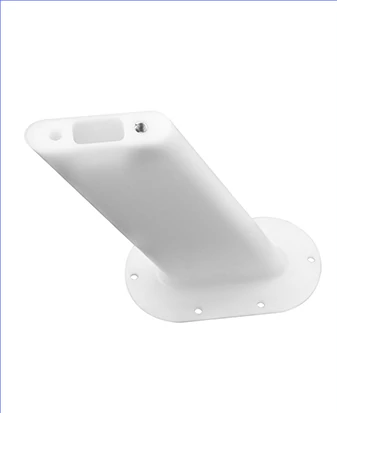Time to read: 6 min

Ceramic materials have become an integral part of our daily lives, with applications ranging from optical to mechanical and electronic devices. This article delves into the application of CNC machining technology in the field of ceramic manufacturing, analyzing its advantages, challenges, and future development trends.
Ceramics, an ancient yet modern material, have permeated every aspect of our daily lives. From traditional kiln firing to modern CNC machining, the manufacturing process of ceramic products has undergone revolutionary changes. CNC machining, with its high precision and ability to create complex shapes, offers endless possibilities for the design and production of ceramic products.
Introduction to Ceramic CNC Machining Technology
Ceramic CNC machining is a process that uses computer-controlled routers to cut ceramic materials into various shapes. Compared to traditional kiln firing, CNC machining not only improves cutting accuracy but also allows for the creation of parts and products with complex shapes and tight tolerances.
Ceramic Materials Ideal for CNC Machining
Not all ceramic materials are suitable for CNC machining due to their varying mechanical, physical, and chemical properties. Here are some ideal materials for CNC machining:
- Alumina Ceramic: Known for its high hardness, wear resistance, and high-temperature resistance.
- Boron Nitride: Unique for its low dielectric constant and good resistance to thermal shock.
- Silicon Carbide Ceramic: The new generation of advanced technical ceramics, favored for its high hardness and thermal conductivity.
- Zirconia Ceramic: Renowned for its exceptional strength, toughness, and resistance to chemicals and corrosion.
Advantages of CNC Machining Ceramics
The advantages of CNC machining technology in ceramic manufacturing are evident:
- Versatility: The ability to create complex and intricate parts.
- Cost-Effectiveness: Compared to other manufacturing methods, CNC machining can be quite cost-effective.
- Great Properties: Ceramics possess many excellent properties, such as durability and hardness, making them ideal for CNC machining.
- Scalability: CNC machining of ceramics is a scalable manufacturing process, allowing for flexible production according to market demand.
Challenges of CNC Machining Ceramics
Despite the advantages of CNC machining ceramics, there are also challenges:
- Material Brittleness: The brittleness of ceramic materials can lead to cracking and chipping during processing.
- Difficult Machinability: The hardness of ceramics can cause excessive wear and damage to cutting tools, leading to increased tooling costs and lower-quality parts.
- Long Lead Times: The nature of ceramic materials and the machining process often results in long lead times.
Tips for Designing and CNC Machining Ceramics
When designing and machining ceramics, it is important to consider their unique physical properties:
- Use simple wall designs and shapes instead of complex ones.
- Opt for round designs instead of oval ones.
- Avoid sudden changes in cross-section.
- Employ a modular design.
- Convert tensile stress to compressive stress to allow the ceramic material to absorb more stress without fracturing.
- Steer clear of sharp and long edges.
Conclusion
Ceramic materials are used in a wide range of mechanical, optical, and electrical appliances. While there are several ways to fabricate ceramics, using a CNC machine is one way to ensure precision machining and tight tolerances. However, the properties of ceramics, such as brittleness and low tensile strength, make this process challenging. It is often best to entrust the machining of these materials to professionals like Unofactory.
Unofactory is a reliable manufacturing company with years of experience in CNC machining various materials, including ceramics. We adhere to a variety of machining design guidelines to ensure your ceramic product meets your specifications. Looking to create high-precision CNC machined ceramic parts? Upload your design to our platform today for an instant quote.




